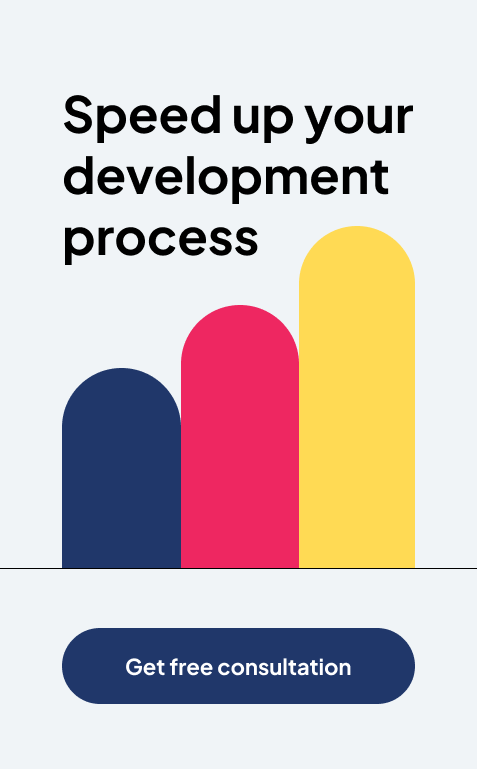10 Best NodeJS Frameworks for Building Robust Web and Mobile Applications

Are you grappling with the challenges of web and mobile app development, yearning for effective solutions to build robust and scalable applications that offer exceptional user experiences?
Look no further. The answer lies within the realm of Node.js and its powerful arsenal of frameworks.
Imagine yourself faced with a deadline, entrusted with creating a web or mobile app capable of handling massive traffic, delivering real-time updates, and ensuring seamless performance. The pressure mounts as you search for the right tools to simplify your development process and overcome these obstacles. Enter Node.js frameworks, offering a wealth of solutions to transform your projects.
The question that emerges is this: How can you navigate the complexities of web and mobile app development and achieve your goals efficiently? Fear not, for we have meticulously curated a list of the 10 finest popularity node.js frameworks that will serve as your guiding light through this labyrinth of challenges.
In this article, we explore Express.js, Koa.js, Hapi.js, Sails.js, Nest.js, Meteor.js, LoopBack, Adonis.js, Total.js, and Feathers.js. Each framework addresses common pain points and offers unique features for diverse project requirements.
By the end, you’ll gain a comprehensive understanding of each framework’s capabilities, empowering you to make informed decisions. Say goodbye to complex development tasks and welcome efficient, scalable, and exceptional web and mobile app development.
#1. Best NodeJS Frameworks: Express.js: The Minimalistic Powerhouse
Express.js is a widely popular and highly regarded framework for building web applications with Node.js. Known for its minimalist design and simplicity, Express.js provides developers with a solid foundation to create robust and scalable web applications. Despite its minimalistic approach, Express.js offers a wide range of features that empower developers to build efficient and flexible applications.
Key Features:
Lightweight and Minimalistic Design:
Express.js is designed to be lightweight and unopinionated, providing developers with the freedom to structure their applications according to their specific needs. The core framework focuses on handling HTTP requests and responses efficiently, allowing developers to have fine-grained control over their application’s behavior.
Extensive Middleware Ecosystem:
Express.js boasts a rich ecosystem of middleware packages that extend its functionality. Middleware functions in Express.js sit between the incoming requests and the final route handler, allowing developers to add custom logic for tasks such as request parsing, authentication, logging, and error handling. The vast collection of community-developed middleware packages makes it easy to enhance the functionality of Express.js applications without reinventing the wheel.
Powerful Routing Capabilities:
Express.js provides a robust and flexible routing system that allows developers to define routes and their corresponding handlers easily. The routing mechanism helps organize the application’s codebase, making it easier to manage complex applications. Developers can define routes for different HTTP methods (GET, POST, PUT, DELETE, etc.) and handle various parameters, enabling the creation of RESTful APIs or complex web applications.
Support for Popular Template Engines:
Express.js offers built-in support for popular template engines like Pug (formerly known as Jade) and EJS (Embedded JavaScript). These template engines allow developers to generate dynamic HTML pages by embedding JavaScript code within the markup. With Express.js, rendering dynamic views becomes straightforward, enabling the creation of server-side rendered web applications.
Flexibility with Additional Modules and Libraries:
While Express.js provides a solid foundation, it also allows developers to extend its capabilities by adding additional modules and libraries. Developers can integrate database libraries (such as Mongoose for MongoDB), authentication middleware (such as Passport.js), or any other third-party packages that align with their project requirements. This flexibility ensures that developers can customize and tailor their applications precisely to their needs.
#2. Best NodeJS Frameworks:Koa.js: Elegant and Modern:
Koa.js is a modern and elegant framework for building web applications with Node.js. Developed by the same team behind Express.js, Koa.js takes a more sophisticated approach to web development, leveraging the power of async/await and middleware generators for cleaner and more readable code.
Key Features:
Async/Await-based Middleware Generators:
Koa.js introduces middleware generators, which leverage JavaScript’s async/await syntax to handle asynchronous tasks in a sequential and readable manner. This eliminates the need for callback hell and allows developers to write code that appears synchronous while preserving the benefits of non-blocking I/O. The use of middleware generators greatly enhances the readability and maintainability of the codebase.
Modular Approach and Extensible Middleware:
Koa.js encourages a modular approach to development, allowing offshore developers india to select and configure only the necessary modules for their specific project requirements. It provides a wide range of community-supported middleware packages, which can be easily integrated into the application. This modularity allows for greater flexibility and code reusability.
Elegant Error Handling:
Koa.js implements a try-catch block within each middleware function, simplifying error handling throughout the application. This approach ensures consistent and centralized error management, making it easier to debug and handle errors effectively. By simplifying error handling, Koa.js helps developers build robust and reliable applications.
Context Object:
Koa.js introduces a concept called the “context” object, which encapsulates the request and response objects, along with other utilities. The context object provides a clean and convenient interface for accessing and manipulating data throughout the middleware chain. This simplifies the process of passing data between middleware functions, enhancing code readability and reducing potential errors.
#3. Best NodeJS Frameworks: Hapi.js: The Configurable Framework
Hapi.js is a powerful and flexible framework for building web applications with Node.js. It is known for its emphasis on configurability, making it an ideal choice for developers who require extensive customization options and want to create enterprise-grade applications.
Key Features:
Configuration-Driven Development:
Hapi.js places a strong emphasis on configuration-driven development, allowing developers to define the behavior of their applications through a configuration object. This approach provides a clear separation of concerns and makes the codebase more maintainable. Developers can easily configure routes, authentication strategies, caching policies, and various other aspects of their application using a simple and intuitive configuration mechanism.
Extensive Plugin Ecosystem:
Hapi.js comes with an extensive set of plugins that extend its functionality. These plugins cover a wide range of features such as authentication, caching, logging, validation, and database integration. The plugin system allows developers to add or remove features as needed, providing flexibility and reducing development time. Additionally, the Hapi.js community actively contributes to the plugin ecosystem, ensuring a growing selection of high-quality plugins.
Robust Input Validation:
Hapi.js provides a powerful and intuitive input validation mechanism. Developers can define validation rules for incoming requests, ensuring data integrity and enhancing application security. The validation system simplifies the process of validating user input and prevents common security vulnerabilities, such as SQL injection or cross-site scripting (XSS) attacks.
WebSocket Support:
Hapi.js excels in real-time communication thanks to its support for WebSocket protocols. This feature enables developers to build applications that require bidirectional real-time communication, such as chat applications or collaborative tools. With Hapi.js, building real-time applications becomes more accessible and efficient.
Modular Architecture:
Hapi.js follows a modular architecture, allowing developers to break down their application’s functionality into reusable components. This architectural pattern simplifies testing, promotes code consistency, and improves overall project maintainability. Developers can easily organize their code into plugins, routes, and handlers, making it easier to collaborate on large-scale projects.
#4. Best NodeJS Frameworks: Sails.js: Full-Stack MVC Framework
Sails.js is a full-stack MVC (Model-View-Controller) framework that seamlessly integrates with Node.js. It provides an opinionated structure and a set of conventions that make it easy to build web applications with a clear separation of concerns.
Key Features:
MVC Architectural Pattern:
At its core, Sails.js follows the MVC architectural pattern, which promotes the separation of business logic, data management, and presentation layer. By dividing the application into these distinct components, Sails.js enables Nodejs developers to write clean and maintainable code. The separation of concerns simplifies code organization and enhances the application’s scalability and maintainability.
Simplified Business Logic, Data Management, and Presentation:
Sails.js simplifies the process of implementing business logic, data management, and presentation layer functionalities. It provides an out-of-the-box ORM (Object-Relational Mapping) that simplifies database integration, allowing developers to work with data using a familiar object-oriented syntax. Additionally, Sails.js includes a powerful templating engine that enables server-side rendering of views, making it easy to generate dynamic HTML pages.
Automatic RESTful API Generation:
Sails.js automatically generates RESTful APIs based on the application’s models, eliminating the need for developers to write boilerplate code. This feature simplifies the creation of APIs and saves development time. Developers can easily define their data models and let Sails.js handle the routing and request/response handling for CRUD operations.
Real-Time Communication Support:
Sails.js supports real-time communication through its integration with WebSocket protocols. This allows developers to build applications that require real-time bidirectional communication, such as chat applications or collaborative tools. With Sails.js, implementing real-time features becomes straightforward and efficient.
Community-Driven and Extensible:
Sails.js benefits from an active and vibrant community that contributes to its growth and development. The framework has a wide range of community-supported plugins and modules, which can be easily integrated into the application to extend its functionality. This extensibility allows developers to leverage existing solutions and build upon the work of others, accelerating development time and ensuring high-quality code.
#5. Best NodeJS Frameworks: Nest.js: Angular-Inspired Node.js Framework
Nest.js is a powerful and versatile Node.js framework that draws inspiration from the Angular framework. It provides developers with a solid foundation for building scalable and maintainable server-side applications using TypeScript, a statically-typed superset of JavaScript.
Key Features:
Angular-Inspired Structure:
Nest.js adopts a modular and component-based architecture similar to Angular. This structure makes it easy to organize code into modules, controllers, services, and other components, promoting code reusability and maintainability. Angular Developers will find the transition to Nest.js smooth and intuitive.
TypeScript Support:
Nest.js is built with TypeScript in mind, allowing developers to leverage the benefits of static typing and enhanced tooling. TypeScript provides compile-time checks, autocompletion, and improved code navigation, resulting in more reliable and maintainable codebases. Additionally, Nest.js integrates seamlessly with popular TypeScript tools and libraries, enhancing the offshore software development experience.
Dependency Injection:
Nest.js utilizes a powerful dependency injection (DI) mechanism that simplifies code organization and promotes modular development. DI allows for the easy management and injection of dependencies into various components, enabling loose coupling and facilitating testing. With Nest.js, developers can easily define and inject dependencies throughout their applications, leading to more flexible and testable code.
Robust Middleware Support:
Nest.js provides a comprehensive middleware system that allows developers to intercept and modify incoming requests and outgoing responses. This middleware support enables tasks such as request logging, authentication, authorization, and error handling. By leveraging middleware, developers can enhance the functionality and security of their applications with ease.
Scalability and Performance:
Nest.js is designed to handle large-scale applications efficiently. It leverages the asynchronous nature of Node.js and supports non-blocking I/O operations, making it highly performant and capable of handling concurrent requests. Additionally, Nest.js provides built-in support for microservices architecture, allowing applications to be easily scaled horizontally to handle increased traffic and demand.
Read Our Page : AngularJS Development Company
#6. Best NodeJS Frameworks: Meteor.js: Full-Stack App Platform
Meteor.js is a full-stack JavaScript platform that allows developers to build web services and mobile applications using a single codebase. With its built-in integration of front-end and back-end technologies, Meteor.js simplifies the development process and provides a seamless experience for creating real-time, reactive applications.
Key Features:
Full-Stack Integration:
Meteor.js integrates both the front-end and back-end layers of an application into a single platform. This integration eliminates the need for developers to use separate frameworks or libraries for the server-side and client-side components, resulting in faster development and reduced complexity. With Meteor.js, you can build end-to-end applications with ease.
Real-Time and Reactive Data:
One of Meteor.js’ standout features is its built-in support for real-time and reactive data. Changes made to the server-side data are automatically propagated to connected clients in real time, creating a reactive experience for users. This feature is especially useful for building collaborative applications, chat platforms, or any application that requires instant updates.
Read Our Blog : Features Of A Real Estate Website: A Deep Dive
Data Synchronization:
Meteor.js provides a powerful data synchronization mechanism that allows data to be seamlessly synchronized between the client and the server. This means that changes made on the client side are automatically synchronized with the server side and vice versa. With Meteor.js, developers can focus on building features without worrying about data synchronization complexities.
Hot Code Reload:
Meteor.js offers a unique feature called hot code to reload, which allows developers to see their code changes reflected in the application instantly without requiring a page refresh. This greatly speeds up the development process and enables developers to iterate quickly and see immediate results.
Large Package Ecosystem:
Meteor.js benefits from a rich ecosystem of packages and extensions contributed by the community. These packages cover a wide range of functionalities, including authentication, database integration, UI components, and more. The package ecosystem allows developers to leverage existing solutions and accelerate their development process.
Cross-Platform Capabilities:
Meteor.js enables developers to build applications for both web and mobile platforms. With its built-in Cordova integration, developers can easily package their Meteor.js applications as native mobile apps for iOS and Android platforms, leveraging a single codebase. This cross-platform capability reduces development time and effort.
#7. Best NodeJS Frameworks: LoopBack: API-Centric Development
LoopBack is a highly extensible and easy-to-use Node.js framework that simplifies the creation of API-centric applications. It provides a powerful set of tools and features for rapidly building and scaling APIs, making it an excellent choice for developers focusing on building robust and scalable backend services.
Key Features:
Strong API Focus:
LoopBack puts API development at the forefront of its design philosophy. It offers a comprehensive set of features and tools specifically tailored for building APIs. Developers can quickly define models, create RESTful endpoints, handle data persistence, and implement authentication and authorization mechanisms. LoopBack provides a structured and streamlined approach to API development, reducing development time and effort.
Easy Data Source Integration:
LoopBack allows developers to easily integrate various data sources, including databases, REST APIs, and other services. It supports a wide range of connectors, enabling seamless integration with popular databases such as MySQL, MongoDB, PostgreSQL, and more. With LoopBack’s data source integration, developers can leverage existing data sources and rapidly build APIs around them.
Model-Driven Development:
LoopBack follows a model-driven development approach, where data models drive the API design and implementation. Developers define models using LoopBack’s powerful modeling language, which supports relationships, validations, and complex data types. These models serve as the foundation for generating RESTful API endpoints, database schemas, and client SDKs, reducing the need for manual coding.
Built-In API Explorer:
LoopBack provides a built-in API explorer that automatically generates documentation and interactive testing capabilities for APIs. This feature allows developers and API consumers to explore and understand the API’s capabilities, view example requests and responses, and test the endpoints directly from the browser. The API explorer greatly simplifies API documentation and improves collaboration between developers and consumers.
Easy Extensibility:
LoopBack is highly extensible, allowing developers to customize and extend its functionalities. It provides a plugin architecture that enables the integration of additional features and third-party modules. Developers can leverage existing plugins or create their own to extend LoopBack’s capabilities and meet their specific project requirements. This extensibility makes LoopBack a flexible framework that can adapt to different use cases and project needs.
Strong Community Support:
LoopBack benefits from a strong and active community that contributes to its development and provides support. The community provides a vast collection of resources, including documentation, tutorials, sample applications, and plugins. Developers can rely on the community for guidance, troubleshooting, and sharing best practices.
#8. Best NodeJS Frameworks: Adonis.js: Batteries-Included MVC Framework
Adonis.js is a full-featured, batteries-included MVC (Model-View-Controller) framework for Node.js. It provides a robust set of tools and features that enable developers to rapidly build scalable and maintainable web applications. Adonis.js follows the conventions over the configuration principle, allowing developers to focus on writing application-specific code rather than spending time on boilerplate setup.
Key Features:
MVC Architecture:
Adonis.js follows the MVC architectural pattern, which promotes the separation of concerns between the different layers of an application. The framework provides a clear structure for organizing code into models, views, and controllers, making it easy to maintain and scale the application.
ORM (Object-Relational Mapping) Integration:
Adonis.js integrates seamlessly with an ORM called Lucid, which simplifies database operations and provides an expressive query builder. With Lucid, developers can define database models, perform database migrations, and query the database using a fluent API. The ORM abstracts away the complexities of working directly with SQL, allowing developers to focus on building application logic.
Authentication and Authorization:
Adonis.js includes built-in authentication and authorization mechanisms, making it easy to implement secure user authentication and role-based access control. The framework provides a flexible authentication system with support for various authentication methods, including JWT (JSON Web Tokens), session-based authentication, and social logins.
Web API Development:
Adonis.js excels in building web APIs with its robust routing system and middleware support. The framework allows developers to define API routes, handle request validation, and implement middleware for request preprocessing. Adonis.js also provides convenient tools for handling HTTP errors and creating consistent API responses.
Command-Line Interface (CLI) Tools:
Adonis.js includes a powerful command-line interface (CLI) that automates common development tasks. The CLI provides commands for generating code scaffolds, running database migrations, running tests, and more. These tools enhance developer productivity and help streamline the development process.
Testing and Debugging Support:
Adonis.js places a strong emphasis on testing and provides built-in support for writing unit tests and integration tests. The framework includes testing utilities and a testing environment that allows developers to easily write and execute tests. Additionally, Adonis.js provides robust debugging capabilities, allowing developers to identify and fix issues quickly.
#9. Best NodeJS Frameworks: Total.js: Highly Modular Framework
Total.js is a highly modular framework for building web applications with Node.js. It offers a set of powerful tools and features that enable developers to create scalable and efficient applications with ease. Total.js follows a modular architecture, allowing developers to pick and choose the components they need for their projects.
Key Features:
Modular Architecture:
Total.js is designed with a modular architecture in mind. The framework is divided into reusable components, such as routing, views, controllers, models, and modules. Developers can selectively choose the components they need and easily integrate them into their applications. This modular approach promotes code reusability, maintainability, and scalability.
Built-In ORM and Database Integration:
Total.js includes its own object-relational mapping (ORM) solution called NoSQL embedded database. This built-in database simplifies data persistence and eliminates the need for additional database setup. It provides an easy-to-use API for managing data, performing queries, and handling relationships between models.
Real-Time Functionality:
Total.js offers real-time functionality out of the box. It includes a real-time communication layer that enables real-time updates and bidirectional communication between the server and clients. This feature is particularly useful for building applications that require live data updates, chat systems, collaborative tools, and real-time dashboards.
Cross-Platform Support:
Total.js supports cross-platform development, allowing developers to build applications for various platforms, including web, desktop, and mobile. With its responsive design and support for different devices, Total.js enables developers to create applications that seamlessly adapt to different screen sizes and form factors.
Server-Side Rendering and Client-Side Rendering:
Total.js supports both server-side rendering (SSR) and client-side rendering (CSR), giving developers the flexibility to choose the rendering approach that best suits their application’s requirements. This allows for improved performance, search engine optimization (SEO), and enhanced user experience.
Extensibility and Customizability:
Total.js is highly extensible and customizable. Developers can easily create their own modules and components, or leverage existing ones from the Total.js ecosystem. The framework provides a range of extension points and hooks that allow developers to customize the behavior of the framework to meet their specific needs.
#10. Best NodeJS Frameworks: Feathers.js: Real-Time Applications Made Easy
Feathers.js is a lightweight and flexible framework for building real-time applications with popularity node.js. It provides a set of tools and abstractions that simplify the development of real-time applications, making it an excellent choice for developers looking to build applications with real-time functionality.
Key Features:
Real-Time Communication:
Feathers.js makes real-time communication between clients and servers a breeze. It provides a real-time event system that allows developers to send and receive real-time updates and notifications. With Feathers.js, developers can easily build features such as chat applications, collaborative tools, live dashboards, and multiplayer games.
REST and WebSocket Support:
Feathers.js supports both RESTful API and WebSocket communication styles, giving developers flexibility in designing their application’s communication patterns. Developers can choose to build traditional RESTful APIs or leverage the power of WebSockets for real-time communication. Feathers.js abstracts away the complexities of handling WebSocket connections, making it easy to integrate real-time functionality into applications.
Modular Architecture:
Feathers.js follows a modular architecture that promotes code reusability and maintainability. The framework is composed of small and focused modules that can be combined to build custom applications. This modular approach allows developers to choose the components they need and easily integrate them into their projects.
Database Integration:
Feathers.js seamlessly integrates with various databases, including popular options like MongoDB, MySQL, PostgreSQL, and more. The framework provides a database-agnostic service layer that simplifies data access and manipulation. Feathers.js also supports real-time data synchronization between clients and databases, enabling instant updates and ensuring data consistency.
Authentication and Authorization:
Feathers.js includes built-in authentication and authorization mechanisms, making it easy to implement secure user authentication and access control. The framework supports various authentication strategies, including JWT (JSON Web Tokens), OAuth, and local authentication. With Feathers.js, developers can easily secure their real-time applications and protect sensitive data.
Plugin Ecosystem:
Feathers.js has a vibrant and active plugin ecosystem that offers a wide range of community-contributed plugins. These plugins extend the functionality of the framework and provide additional features and integrations. Whether you need integration with external services, additional authentication strategies, or custom functionality, chances are there’s a Feathers.js plugin available to meet your needs.
Wrapping it Up:
the world of web and mobile app development is undergoing a paradigm shift, thanks to the transformative capabilities of Node.js frameworks. We have explored the remarkable features and strengths of Express.js, Koa.js, Hapi.js, Sails.js, Nest.js, Meteor.js, LoopBack, Adonis.js, Total.js, and Feathers.js, witnessing how they empower developers to create robust, scalable, and innovative applications.
Now, armed with the knowledge of these powerful frameworks, it’s time to take action. If you’re ready to unlock the true potential of Node.js and revolutionize your development projects, look no further than Imenso Software. As a leading offshore software development company, Imenso Software boasts a team of skilled professionals who specialize in Node.js and its frameworks, ensuring exceptional results for your app development needs.
We’re honored to mention that our efforts have been recognized by renowned B2B review and research platforms such as GoodFirms, Clutch, MirrorView, and many more.
Similar Posts
50 Mobile App Ideas for the Problem-Solvers Out There
Are you looking for the best mobile app startup ideas? If yes, you have come to the right blog! Of course, there’s an app for that.’ When Daniel Kraft, MD, uttered these words about his digital stethoscope, he was neither exaggerating nor fooling around. After all, isn’t there an app for everyone and everything around? […]...

Easy Mobile App Ads Monetization Guide 2021
Owning a mobile app is a legit revenue-generating successful business stream. According to Statista, by 2023 the mobile app market is expected to generate 935 billion U.S. dollars in revenues via paid downloads and in-app advertising. ...

Ultimate Guide To Pick A Software Development Outsourcing Partner in 2023
The process of selecting a reliable outsourcing partner for software development is complex and time-consuming. You may need a few months to do your due diligence and narrow down your options to a single service provider with whom you feel comfortable making a long-term commitment....










